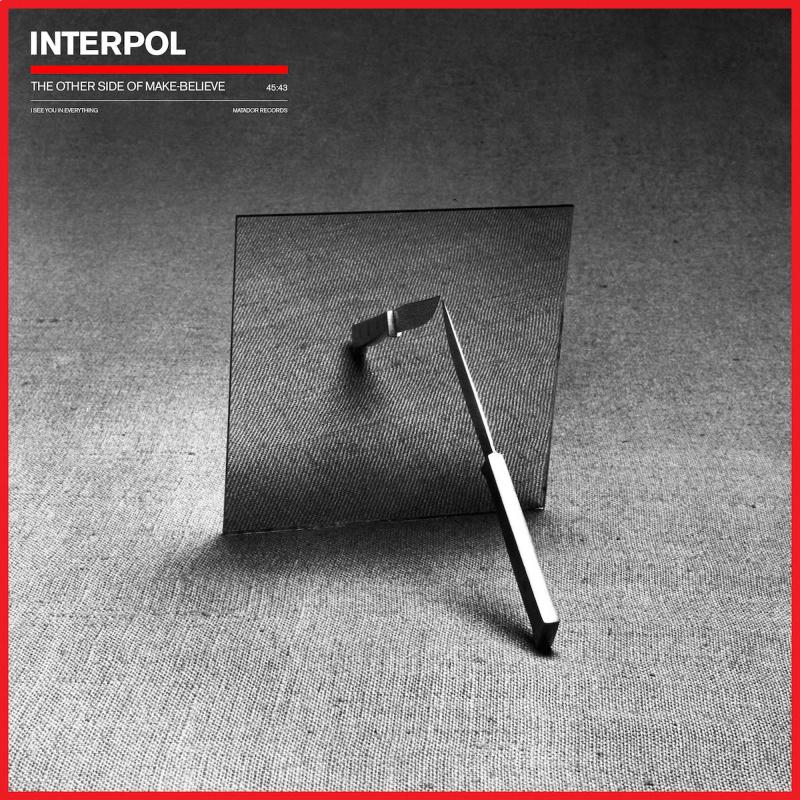
Interpol’s seventh studio album tackles some common misconceptions.
Hanging out in the (virtual) Live4ever office, a straw poll of non-Interpol devotees, when asked to associate the band with any words or phrases, brought out things like ‘doomy’, ‘post-punk’ and ‘New York’.
Not exactly scientific, but each of those has certainly been an event horizon the trio have rarely seemed very motivated to escape.
When they last released music it was in the form of 2019’s A Fine Mess EP, a quintet of off-cuts from the sessions with producer Dave Fridmann which spawned their last album Marauder.
Since then, singer Paul Banks has spent lockdown time in Edinburgh, and collaborated with Matt Barwick and Josh Kaufman as Muzz, but the time spent in Scotland’s capital city also gave him enough headspace to lay down what would become the essence of Interpol’s seventh album.
Eventually, he reconnected with Sam Fogarino and Daniel Kessler in the Catskills while veterans Flood and Alan Moulder were on booth duties as work was completed in London.
In part due to having to imagine how each other would sound over the initial rough versions, Banks found himself reigning back some of the darkly rich undertow in his vocals; finding perhaps the most surprising call for inspiration ever, Flood has even claimed that these demo tones somehow evoked Mickey Rourke’s character in the niche eighties’ movie Barfly.
Out there, yet in some ways this makes sense; guitarist Kessler has said that almost everything he’s ever shaped for the group has in some way been inspired by film, and as a result long ago Interpol established themselves as purveyors of music fit to score art-house celluloid by the dollar.
Opener Toni, with its chilly piano scales and world-weary sounding vocals, is as cinematic as anything from a now vast back catalogue, aided by lyrics about a story taking place on a, ‘flame down Pacific highway’, where a, ‘wayward starlet…looked me up and down, said, babe we’re soaring, but you don’t notice’.
Perhaps one truth is that words usually occupy a slightly lesser space in the fabric of the group’s material, as evidenced by Renegade Hearts’ wooden reading (‘Call me for sake of change/It’s a custom how gluttons do’).
But the flipside is that they rarely miss the opposite mark; although some will doubtless be miffed that they never really cut loose here compared to times past, chunks of the old swagger beef up Mr Credit and haunt the lucid dreams of Something Changed.
As ever though, they can swap disguises whenever needed. Fables brushes off a chattering Fogarino lick in a conscious nod to classic hip hop, whilst Go Easy (Palermo) tumbles with their ultra-familiar gait.
The centrepiece however is Gran Hotel – a story, Banks says, of heartbreak which relates the experience of processing loss; on it the tortured subject jumps to another place and time where he admits, ‘I see you in everything to my truly vacant heart’, whilst Kessler’s lick bleeds mournfully with him.
The Other Side Of Make-Believe shows why polls and their opinions they produce are so frequently wrong. Interpol as a band have rarely, if ever, stood as anything other than paragons of their own virtues.
Accordingly, their work has reached a stage where they’d really like you to take it but if you want to do the opposite, they’ll understand. And behold, this piece got all this way without mentioning Joy Division.


